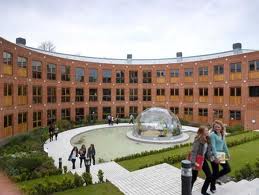 Apilot project under India’s plan to digitize all educational certificates and make them available online is expected to take off before the current academic year ends in March.
Apilot project under India’s plan to digitize all educational certificates and make them available online is expected to take off before the current academic year ends in March.The human resource development (HRD) ministry has asked the Central Board of Secondary of Education (CBSE) to start the pilot by creating digital copies of newly-issued school certificates.
Eventually, new and old certificates of all school boards, colleges and universities will be digitized and fed into a repository that would be accessible for a nominal fee.
The ministry expects this will make it easier for employers and educational institutes to verify the credentials of prospective workers and students, besides ridding the fear of school and college graduates losing their physical certificates.
“From higher studies to employment, education credential check is an important part. Now, the process is tedious, time-consuming and not foolproof... Once completed, this (digitization) will make life easier for students, academicians, education administrators and employers,” said a ministry official, requesting anonymity.
“After nearly a year-long deliberation, we have asked CBSE to carry out a pilot. After school boards, it will be implemented by universities and other higher educational institutions,” the official added. CBSE is controlled by the HRD ministry.
The ministry floated the idea in January, but decided to discuss it with all stakeholders before moving ahead. Earlier this month, the CBSE was asked to launch the pilot, said another HRD official, asking not to be named.CBSE is likely to start the pilot in Delhi, one of five administrative zones into which it has divided the country—the others being Guwahati, Allahabad, Ajmer and Chennai. Around 1.7 million students give CBSE’s class X and XII examinations every year.
The second official said that under the project, all educational certificates will be available in virtual form, just like shares and securities of stock exchanges, in the national database. When someone applies for a job, the company can request the database manager to verify the credentials of the applicant by paying a small fee.The system would ensure security and authenticity of information. In case of theft or loss of physical certificates, people can get a duplicate copy easily, without having to make rounds of their school or university.
Piyush Mehta, senior vice-president, global-human resources, at India’s largest business process outsourcing firm (BPO) Genpact, said the online repository of digital certificates will help companies such as his own save time and money.
“Though it has gone down over time, still 5-10% of the people recruited submit fake documents,” he said. Mehta added that an industry of verification agencies has cropped up, which can be done away with.
CRP HR Services, a background screening firm based in Mumbai, said a number of resumes checked by it has false information. “Overall, the discrepancies are in 15% of the cases. The discrepancies include education credentials, employment details, and salary last drawn, etc.,” said Nipa Modi, chief executive officer.
“The trend of false information in resumes increases when job scenario is generally good. IT (information technology), BPO, banking and hospitality industries are now going for such screening largely, but BPO industry is the segment where we get more red flags,” she added.While welcoming the government initiative, Modi added: “We don’t see that this effort will affect our business as the opportunity is huge.”
India’s largest depositories, the Central Depository Services (India) Ltd (CDSL) and the National Securities Depository Ltd (NSDL) are vying to win the project, said the second HRD ministry official cited above.A CDSL official declined comment. NSDL could not be immediately reached.
The depository that wins the contract will manage the database on its own, but will appoint an IT firm to build applications for verification, among other things.
“The depositories are likely to evaluate the cloud-based model for it, as it will enable online authentication,” said an official of a large IT firm who is aware of the project, asking not to be identified.
The cloud-based model is Internet-based computing, in which data and other resources are provided by shared servers to computers and other devices on demand.
IT lobby group Nasscom set up the National Skills Registry (NSR) in 2006 as a database of IT professionals with a similar idea. A total of 590,000 professionals and 83 companies, which account for 70% of total workforce employed by IT/IT enabled services sector, were registered with NSR, as of February.
Ganesh Natarajan, former chairman of Nasscom and global chief executive of Zensar Technologies Ltd, said even NSR takes two-three weeks for authentication, which the HRD ministry’s project could do almost instantly.“There will be nothing like a single computerized database with all the information, it will solve many issues of the industry,” he said.




















